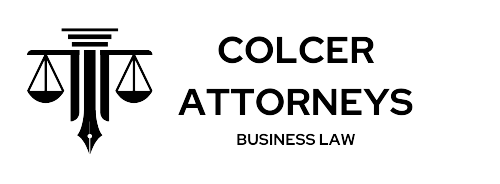On April 8, 2025, the Chamber of Deputies adopted a legislative proposal amending the Romanian Civil Procedure Code (“CPC”) by increasing the value threshold for the application of the small claims track (in Romanian: “procedura cu privire la cererile de valoare redusă”). The new limit is set at RON 50,000 (approx. EUR 10,000), up from the previous RON 10,000 (approx. EUR 2,000). The amendment will enter into force after being promulgated and published in the Official Gazette.
What Is the Small Claims Track?
Regulated under Title X of the CPC (Art. 1026–1033), this special procedure provides a simplified and expedited framework for resolving low-value civil disputes. It is based primarily on written evidence, conducted in judge’s chambers, with short deadlines for submitting documents and issuing the decision.
According to the amendments made to Art. 1026(1) CPC, the procedure applies exclusively to claims not exceeding RON 50,000, excluding interest, legal costs, and other ancillary amounts.
The small claims track is an alternative to the common civil procedure. The claimant has the right to request the application of this expedited procedure no later than the first court hearing.
Advantages of the Small Claims Track
• simplicity: The claimant fills in a standard form (Art. 1029 CPC), and the procedure is written, usually with no obligation to appear in court;
• speed: The court must rule within 30 days from receiving all necessary information (Art. 1031 CPC);
• low costs: There are no costs related to court appearances, and the court may refuse expensive evidence relative to the value of the claim (Art. 1030(9) CPC);
• court fee: RON 50 or 200 (EUR 10 or EUR 40). This is significantly lower than under the common civil procedure, where, for example, for a RON 50,000 claim the court fee in the first instance would be around RON 2,105 lei (approx. EUR 400) (calculated according to Art. 3(1) of Government Emergency Ordinance 80/2013 on court fees);
• enforceable judgment: The judgment rendered by the first instance is enforceable by law, which is an advantage over the common civil procedure. This allows for faster enforcement of the awarded amount.
What Types of Cases Are Excluded?
The small claims track is not applicable in fiscal, customs, or administrative matters, nor in cases involving state liability for acts or omissions in the exercise of public authority.
Additionally, the small track claim cannot be applied to claims related to: a) civil status or the legal capacity of natural persons; b) property rights arising from family relationships; c) inheritance; d) insolvency, preventive concordat, liquidation of insolvent companies and other legal entities, or similar procedures; e) social security; f) labour law; g) lease of immovable property, except for claims regarding the payment of money; h) arbitration; i) violations of the right to private life or other personality rights.
Jurisdiction
The competent court for small claims track in the first instance is the court of first instance with territorial jurisdiction established under the general rules (typically, the defendant’s domicile or registered office).
Procedure for Small Claims Track
The procedure is initiated by completing a form approved by the Minister of Justice and submitting or sending it to the competent court by post, courier, or in person, along with copies of the supporting documents.
The court fee is RON 50 for claims up to RON 2,000 and RON 200 for claims exceeding RON 2,000.
If the form is not completed correctly or fully, the court will give the claimant the opportunity to correct or complete it, under the penalty of dismissal.
The procedure is written and conducted in judge’s chambers; the parties’ presence is generally not required. However, if deemed necessary, the court may order the parties to appear and issue summons accordingly.
The defendant may submit a response using a designated form or by any other suitable means within 30 days of being served with the claim by the court.
The court may allow additional evidence besides the documents submitted by the parties, as long as the costs are not disproportionate to the value of the claim.
The decision of the first court of instance
The court issues and drafts the decision within 30 days of receiving all necessary information or after oral debates, if any.
The first instance decision is enforceable by law.
Appeal
The first instance decision is subject only to appeal, which must be filed within 30 days of its service. The appellate court may suspend enforcement for well-grounded reasons, but only if a bond of 10% of the contested amount is posted.
The appellate court’s decision is final.
Conclusion
Raising the value threshold for small claims to RON 50,000 represents a significant step toward streamlining the justice system and ensuring easier access to courts for minor disputes. Although its applicability is limited to certain types of cases, the procedure remains a viable and efficient alternative for the rapid resolution of a substantial number of civil disputes.
This article does not constitute legal advice and the author cannot be held liable for any opinions expressed herein. We do not accept responsibility for any legislative changes that may occur after the publication of this article. If you have any questions regarding the subject matter covered, please feel free to contact us.

Small Claims Track: Romanian Parliament raises the threshold to RON 50,000 (approx. EUR 10,000)
On April 8, 2025, the Chamber of Deputies adopted a legislative proposal amending the Romanian Civil Procedure Code (“CPC”) by increasing the value threshold for the application of the small claims track (in Romanian: “procedura cu privire la cererile de valoare redusă”). The new limit is set at RON 50,000 (approx. EUR 10,000), up from…



